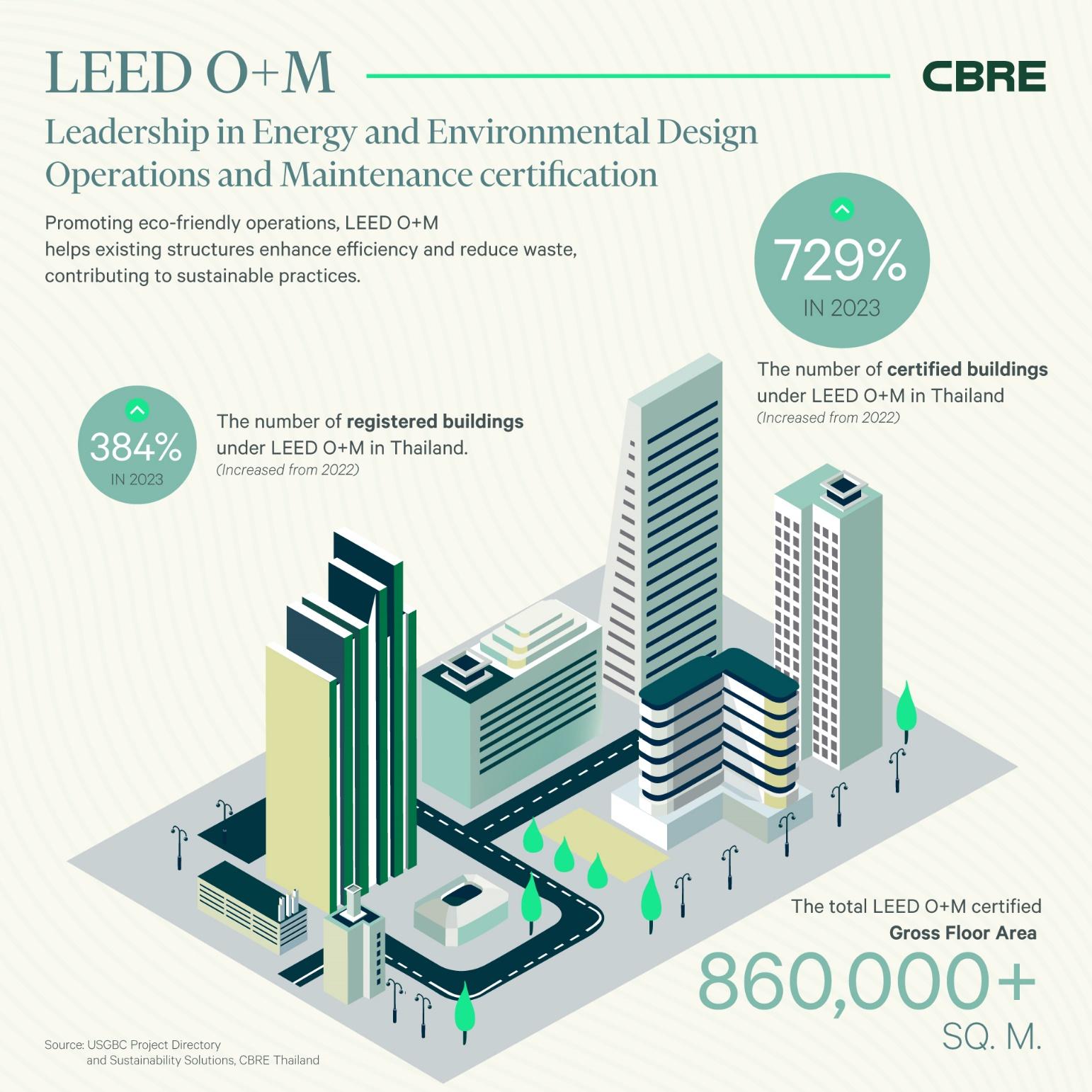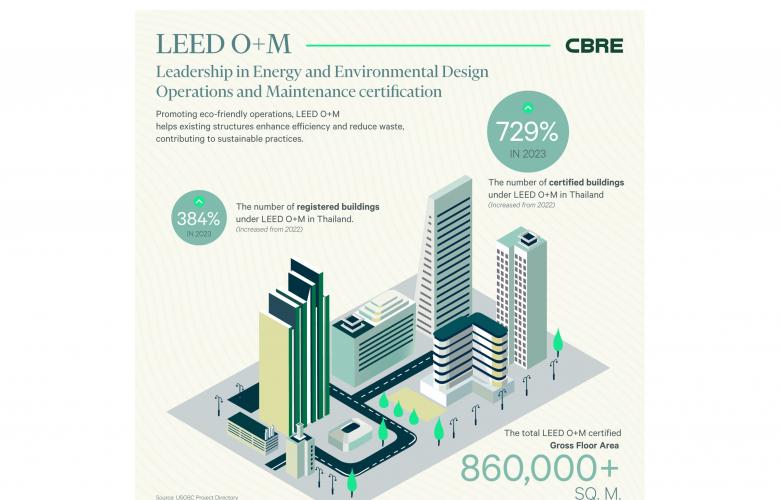CBRE Thailand reports that a significant proportion of existing office buildings have become obsolete due to outdated structures and designs, many of which have been in place for a considerable number of years. As these buildings age, their performance and efficiency inevitably deteriorate, leading to increased resource consumption, escalating maintenance costs, declining air quality and a substantial negative environmental impact.
Enhancing the performance of these older buildings can directly and immediately lessen their environmental footprint, thereby creating a net positive effect on the environment. In addition, such improvements can yield a return on investment for landlords through operational cost savings and heightened tenant engagement.
In recent years, there has been a notable surge in implementing sustainable practices in older buildings. LEED® O+M (Leadership in Energy and Environmental Design for Operations and Maintenance), a pioneer in green building certification programs, advocates for environmentally friendly operations. It aids existing buildings in boosting efficiency and minimizing waste, thus contributing to sustainability. According to the green building certification program, the number of buildings registered and certified in Thailand is on a steady incline. In 2023, the number of areas registered and certified under LEED O+M increased by 384% and 729%, respectively, compared to 2022. To date, the total gross floor area certified under LEED O+M is approximately 860,000 square meters.
A recent trend indicates that an increasing number of tenants are adopting ESG (Environmental, Social, Governance) practices and demanding certified buildings. This requirement significantly influences their office selection, prompting landlords to consider building improvements to maintain competitiveness.

LEED is one of the most prominent green building programs in Thailand. It offers a benchmark for buildings that prioritize highly efficient, cost-saving and environmentally friendly strategies, as well as improvements to indoor environmental quality, all in pursuit of achieving ESG goals in building operations. The program applies to both new constructions and existing buildings, ranging from single structures to communities.
“We are experiencing this trend firsthand at CBRE Thailand as we provide green building consultancy services for several buildings,” shared Mr. Lalit Thitipaisal, Associate Director of Sustainability at CBRE Thailand. “We have found that most projects exhibit impressive energy performance because they allocate ample resources to energy-saving improvements, including areas such as water consumption, waste management and indoor air quality.”
In the buildings managed by CBRE, we have implemented energy audit services to assess the status and current performance of building equipment. Subsequently, no-cost and low-cost strategies are introduced and enacted. Our initial efforts resulted in a 13% annual reduction in the combined energy use across all buildings, equivalent to 16 million kWh per year. This led to a reduction in carbon emissions of approximately 7,100 metric tons, the same amount that a 2,600-rai mangrove forest would absorb.
CBRE anticipates further advancements in the certification of buildings that meet sustainability standards in the future. The progress made in retrofitting buildings for sustainability serves as a testament to the broader potential for environmental improvement within the urban landscape. As CBRE continues to drive these initiatives, the impact extends beyond just the buildings themselves, contributing to the overarching goal of creating more sustainable cities.









